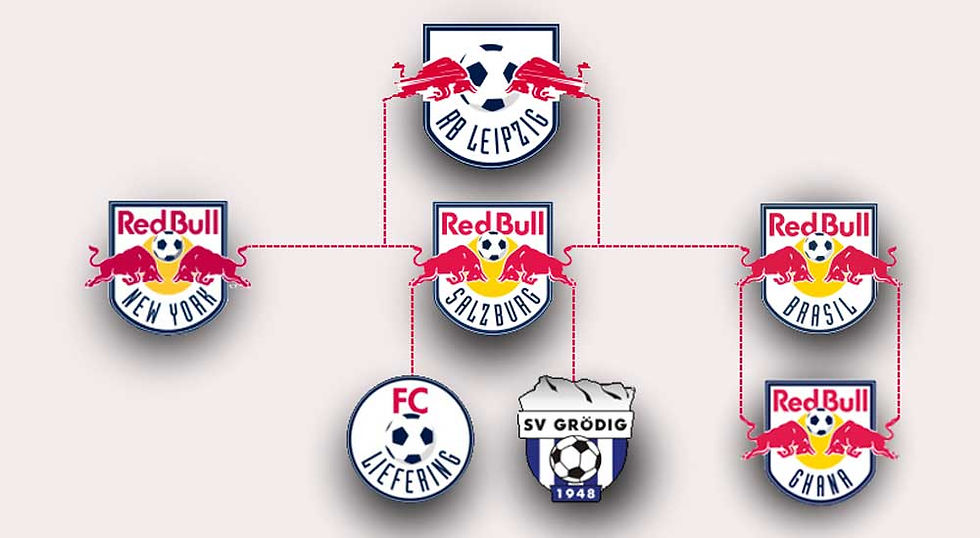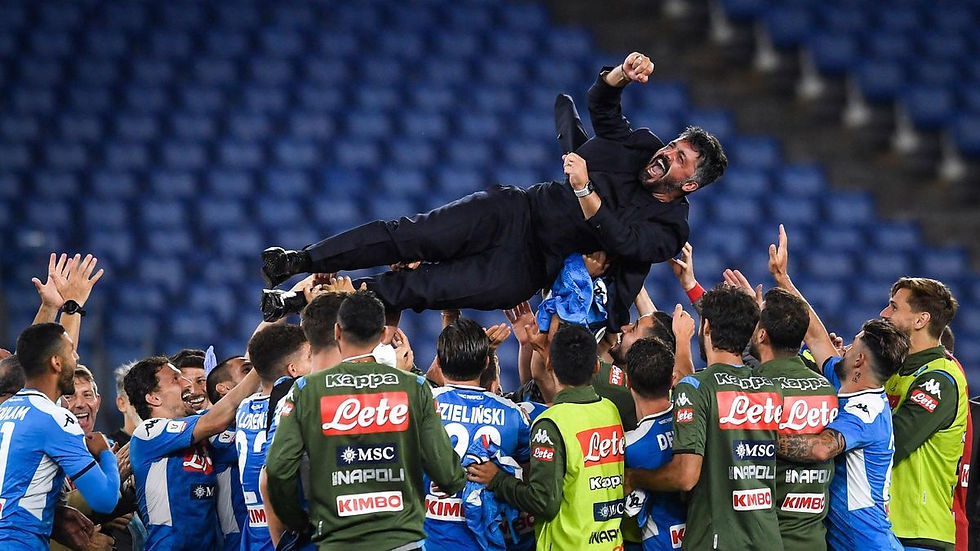Football Groups & Loan System
- kcottrell2012
- Sep 14, 2020
- 5 min read

The idea for this one came to me as I was in the shower. For some reason, I went from thinking about David Brooks to the fact that two Welsh clubs were in the Championship playoff, to Conor Gallagher, to the Market Insights podcast I listened to earlier in the week about football groups. What a train of though that was. I then brought in my own American perspective and tried to come up with the best cross-sport comparisons for those two parts of football.
In terms of loaning players, there's not really such a thing in American sports. The thought process in my head immediately went to college sports. Basically, the idea of a "big club" loaning players is supposed to be that youth are given a chance to develop in the professional game. That's why Gallagher came to mind. Chelsea have been labeled a "loan army" club, where they have tons of young players on the books getting minutes at other clubs, usually to be sold for a profit. What's supposed to happen, at least in my mind, is a player aged 16-21 will go out on loan to get significant playing time in a system that will allow him to integrate to his parent club. My example in American sports would be college basketball. I also realize many of the best recruits from high school only intend to be in school for one year before leaving for the NBA. This applies more for guy who'd stay at least 3 years. The idea, and I'll use my school as an example, is Tony Bennett plays a specific brand of basketball, and usually first years (freshmen) take a while to adjust. Some even redshirt, which essentially means forgoing a season to develop so that you get an extra year of eligibility at the end of your career. It would be nearly impossible, logistically, but the ideal "loan" for a UVA player would be to Liberty, as that team is coached by one of Bennett's old assistant coaches, Ritchie McKay. From what I've heard, he's implemented a similar style since he's been there, and that could be a smoother transition from high school to college, while still playing meaningful minutes against grown men. Something I think is overlooked in the loan system is having players maintain a progression, rather than just send them out to keep them on the books for future sales. Hoarding young talent to sell on works as a business model, but it's exploiting the purpose of the loan system. I also think there should be mandatory loan limits. I'm not proposing anything specific, but to have more than a certain number of players on the books should be illegal. In Serie A they still basically do the third party ownership thing by selling with buy-back clauses and loaning 20+ players to various clubs each season. Atalanta had like 70 players on the books, which is absurd. The other obvious way this could work is if US sports had farm teams. which brings me to my next example.

This is also a bit of a reach, simply because it's a system within an overarching league, which is major league baseball. In football, specifically with Red Bull, they have a chain in place where the New York and Salzburg clubs have the chance to act as feeder clubs for Leipzig, the main club. The Red Bull model has always been to develop young players, all the while making the "top club" in the system, aka Leipzig, a force in the Bundesliga. I dislike the 50+1 circumvention, but out of the "rule breaker" clubs, I tend to be partial to Leipzig. Man City's ownership group have a similar situation, also including a club in New York. The system there is different, mostly because Premier League money is off the charts, and they have a mega-rich owner whose money is (practically) infinite. The young players they shuffle around the group usually sold for profit. Aaron Mooy is a prime example. He was in Australia, was bought by City, loaned to Melbourne City, and then sold to Huddersfield. There's another Aussie called Arzani on the same path. It's basically Chelsea, but later on, and with aesthetically pleasing football by the "revolutionary" Pep Guardiola. Douglas Luiz is a player I've written about in relation to Villa, and he was involved with the City group, taking part in the season Girona were relegated from La Liga. He was then sold for a profit by City. Likewise, Jack Harrison is an example who's now in the Prem with Leeds. He grew up in England, moved to the states for high school and college, was drafted #1 overall in MLS, and then moved to NYCFC. He performed well there, prompting a move to Man City, though he's been on loan the whole time.
It's different in baseball, due to the fact that there's a draft, but players progress through the ranks before making it to the first team (AKA major league club), or are released/traded. The teams within an organization are located in different cities and play within leagues of different talent levels, just like in football. A major contrast in this comparison is that, as I mentioned, every major league baseball team has a farm system. That's far from the case in football, as 99% of clubs out there are selling their best players to clubs higher up the food chain. The obvious reason, however, is a draft system with no promotion/relegation is a completely different ball game.
In conclusion, the question is, is this ethical? If it is, why don't more clubs do it, especially English ones? It's clear the options for developing young players is limited due to the league structure, where grown men are getting paid through the EFL as well as the National League. A club like Ajax or Barcelona, for example, has a B team that allows youth to play pro games in a low pressure environment, which aids development. Think of a team like Arsenal. The owner's family already owns the Colorado Rapids (MLS) and they have boatloads of money. They could buy, let's say, a random French or Italian club, and build it up, sending their youth there to play meaningful minutes in a top league. In the current football landscape, there's such a drastic difference in level from the top of each league to the relegation sides, as well as between divisions. Something drastic would have to be enforced to reconcile that, like a draft system or hard salary cap, neither of which will happen. Therefore, with the gulf in wealth in the game, and the lack or rules prohibiting it, this practice will only expand.


Comments